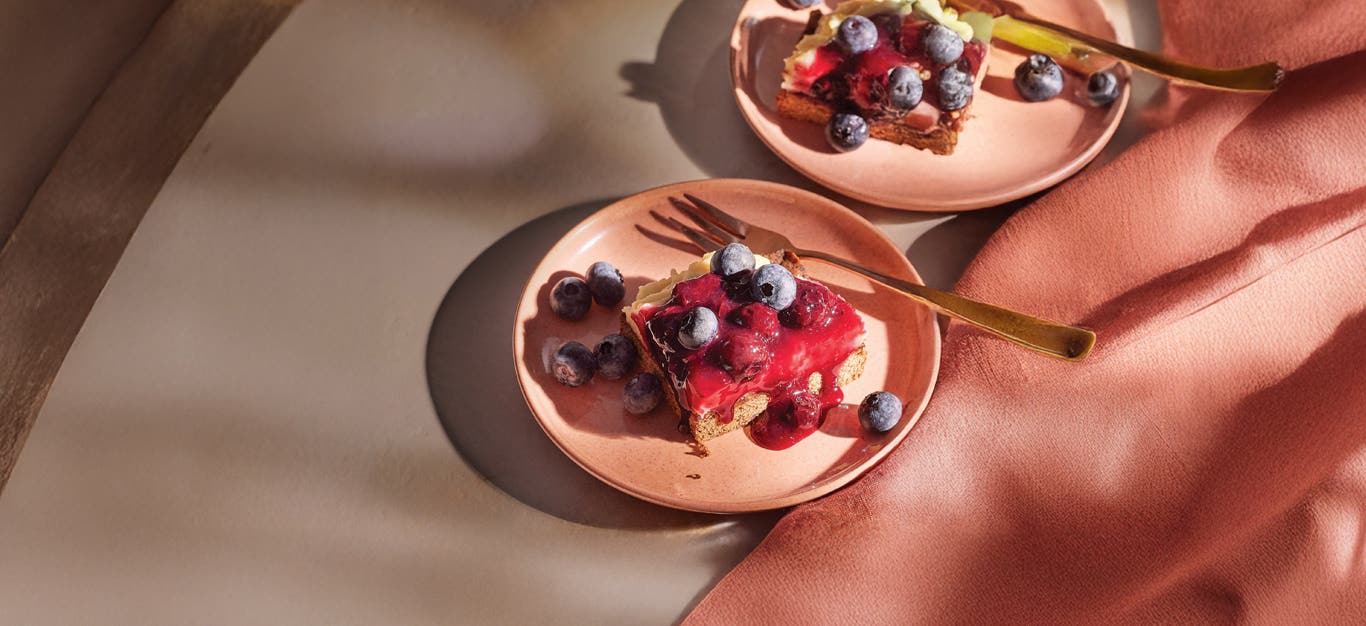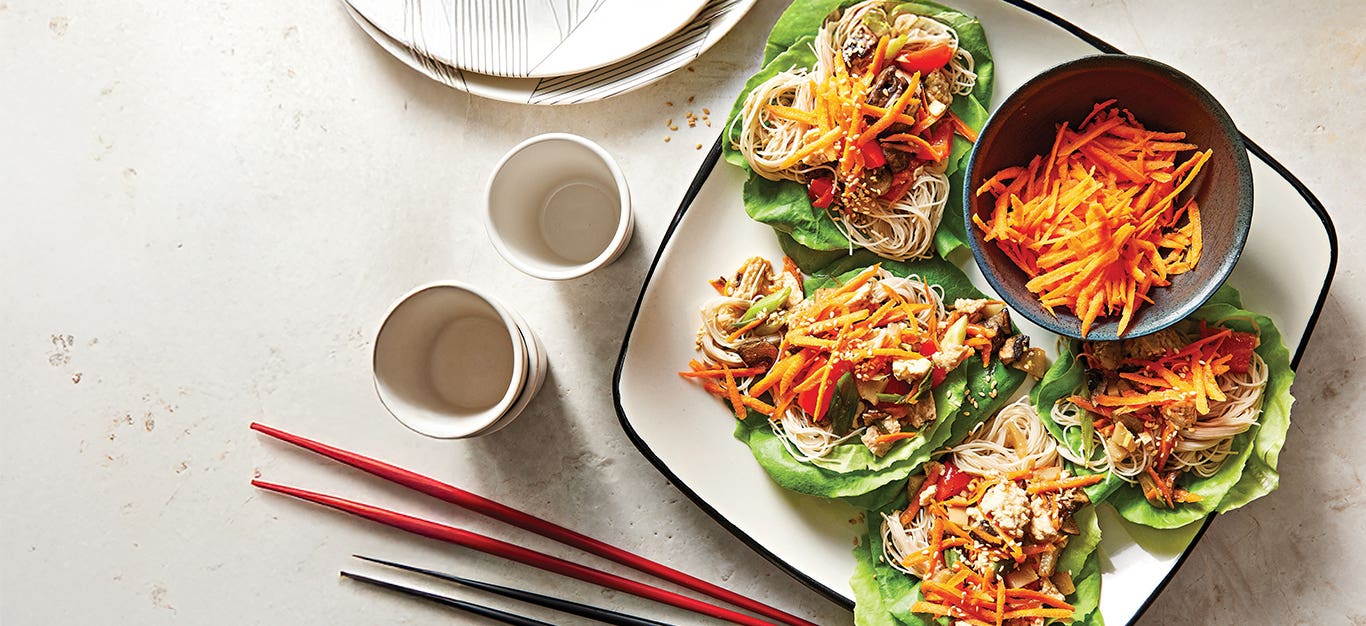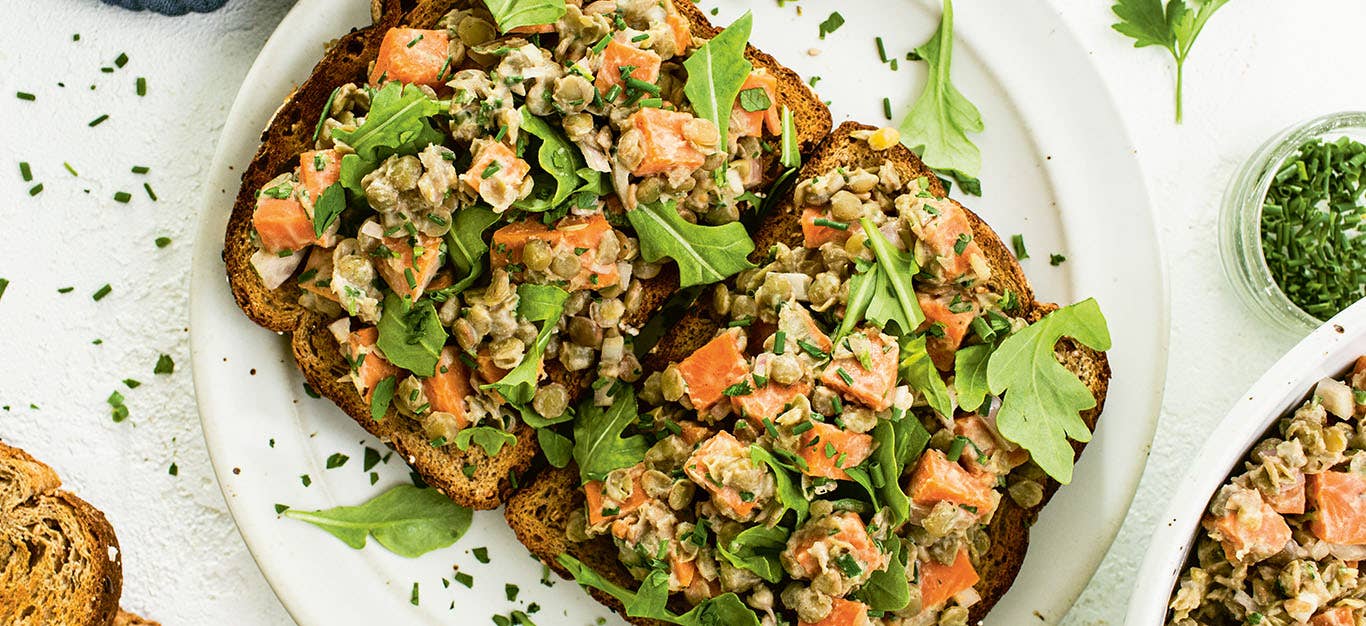- Prep-time: / Ready In:
- Serves 6
- Serving size: ⅙ of recipe
- Print/save recipe
Pasta primavera is related to and likely derived from authentic Italian dishes. However this is more accurately a North American dish, created in Nova Scotia and brought to New York City in the early 1970s. Typically, made with olive oil or alfredo, this dish would be high in fat and cholesterol. Luckily, this version keeps the fat to a minimum and is totally health promoting!
By Katie Mae,

Ingredients
- 12 ounces quinoa penne
- 3 cups broccoli, chopped
- 2 cups carrots, diced
- 1 onion, diced
- 1 cup red bell pepper, diced
- 1½ tablespoon garlic granules
- 2 cups low-sodium vegetable broth
- ½ cup raw cashews
- 1 cup soy milk
- ½ cup oat flour
- 2 cups green peas
- ¼ teaspoon black pepper
- 2 teaspoons dried basil or 2 tablespoons fresh
- 2 teaspoons dried oregano or 2 tablespoons fresh
- 1 cup cherry tomatoes, halved
Instructions
- In a medium pot, bring water to a boil. Then add the pasta and cook according to the directions on the box. When the pasta is slightly al dente, remove from heat, drain, and set aside. While pasta cooks, in a large sauté pan, sweat (see chef's note below) the broccoli, carrots, onion, red pepper, and garlic on medium heat for 10 minutes. Keep them covered and stir occasionally. Then stir in the vegetable broth and simmer for another 10 minutes.
- Grind the cashews in a spice grinder to form a cashew powder. A coffee grinder or blender would also work. Either way, make sure the appliance is completely dry.
- Stir in the soy milk, oat flour and cashew powder. Make sure to stir occasionally to prevent the oats from clumping together. Add the peas, black pepper, and dried herbs. Simmer for 10 minutes, continuing to stir occasionally, until the oats and cashews create a creamy sauce. Mix in the pasta and tomatoes. Best served right away. Also delicious chilled as a pasta salad.
Notes:
Sweating is a mix of sautéing and steaming. The idea is the water will come out or “sweat” from the veggies, which creates enough moisture so that no added liquid is needed. To sweat an item, put the cut veggie in a sauté pan without oil or water over medium heat. Keep the pan covered and stir frequently. Do this until the item is cooked to desired frequency. If the pan is becoming dry or veggie starts to stick to the bottom of pan, add a little bit of water or vegetable broth. You can also turn down the heat.
Because you are grinding the cashews and using oat flour, they will be slightly coarse and you will likely see specks of these two within the cream sauce. If this bothers you, you could try substituting a more refined thickening agent, such as store-bought rice flour or potato starch.
If you are using fresh herbs, add them in the last step when you are mixing in the pasta and tomatoes.
Per serving (⅙ of recipe): 429 calories, 78.7 g carbohydrates, 14.1 g protein, 8.1 g total fat, 1.3 g saturated fat, 0 g cholesterol, 97 mg sodium, 11.3 g fiber, 10.2 g sugar
Note: Nutritional information is provided as an estimate only.




Comments (1)
(3 from 1 vote)This was ok, but needs something. I will make it again, but I think I will skip the step that cooks the sweated veggies for 10 minutes in veggie broth. I’ll make the sauce (which is delicious) separately and mix everything together at the end. I think some crunch in the veggies would improve the dish, maybe a squeeze of lemon too.